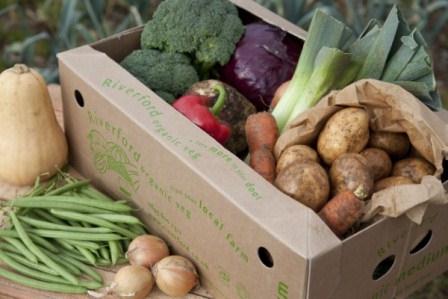Tag: nutritional advisor
Pregnancy Diet
As a mum-to-be you’ll probably have many questions about your pregnancy diet.
- What do I eat during pregnancy?
- What shouldn’t I eat during pregnancy?
- How many extra calories do I need when I’m pregnant?
Pregnancy affects every woman differently.
I had bad morning sickness for the first 16 weeks of my pregnancy and then miraculously it disappeared, only to come back during the last 6 weeks of my pregnancy.
It’s important to eat foods that will give you and your baby as many nutrients as possible when you’re pregnant, and always remember your baby eats what you eat.
As a Nutritional Advisor and Mum I always make the following recommendations for pregnant women.
What to Eat During Pregnancy
- Eat a variety of wholefoods everyday – choose from wholegrain rice, quinoa, wholemeal pasta, pulses, rye and wholemeal breads.
- Eat five plus servings of fruit and vegetables everyday, if fresh wash them well – go for brightly coloured fruits and vegetables as these contain more nutrients and antioxidants. Go organic if you can here’s why.
- Eat two portions of fish a week, one being oily fish such as mackerel or sardines.
- Eat cooked rather than raw shellfish.
- Eat organic produce as often as you can – you’ll be avoiding the pesticides that are sprayed on fruit and veg, and the antibiotics and hormones that are given to animals.
- Make sure any egg, cheese, milk, yoghurt and fruit juice products you eat are pasteurised.
- Make sure all meat and poultry is cooked thoroughly.
What Not to Eat During Pregnancy
- Cut down your intake of caffeine with no more than two cups of coffee per day.
- Avoid eating Shark, Marlin, King Mackerel, Tilefish and Swordfish. Limit Tuna Steaks to one a week (about 140g cooked or 170g raw each) and limit canned Tuna to no more than four portions of medium-sized cans (140g drained weight) per week. This is due to the higher than average levels of mercury found in these fish which can damage a baby’s developing nervous system.
- Make sure all eggs are thoroughly cooked until the whites and yolks are solid – to prevent the risk of food poisoning by salmonella bacteria.
- Avoid eating any type of pate, including vegetable pate, as these can contain listeria.
- Avoid eating liver or liver products as these contain high levels of Vitamin A which could harm your baby.
- Avoid eating mould ripened soft cheese, such as brie and Camembert as well as blue-veined varieties, such as Stilton and Danish Blue – this is due to the risk of listeria infection.
- Try to avoid junk food, it provides you and your baby with no nutrients and is likely to add to your pregnancy weight gain.
How many extra calories do I need to eat when pregnant?
It’s probably not until the last 3 months of pregnancy that you’ll need to up your intake of calories.
During months 6 to 9 of pregnancy your baby will be getting larger and growing faster as they put on layers of fat in preparation for their arrival. At this time you’ll probably need to increase your calorie intake per day by up to 200 calories, which is roughly equivalent to two slices of wholemeal toast with butter.
That said, I know when I was pregnant that two extra slices of toast and butter a day were not enough to ward off those hunger pangs in the final months of pregnancy.
Listen to your body and be sensible. Eat healthy snacks if you’re hungry between meals and if you suffer from morning sickness it may help to eat several small meals throughout the day rather than three larger meals.
You can find out more about a healthy Pregnancy Diet with NHS Pregnancy and Baby.
Going Organic? A Good Place To Start
There’s a vast amount of information available concerning foods you should and shouldn’t eat.
My advice is to keep things simple and natural. As a Nutritional Advisor and a Mum this equates to good, wholesome, fresh, organic foods.
Going organic has become fashionable over the last decade and I seem to find new organic food producers each week. There’s a great selection of organic ready meals for babies and toddlers with the likes of Organix, Ella’s Kitchen and Plum.
Popular providers of UK organic produce that can be delivered to your door are Riverford and Abel & Cole.
But despite all the hype and marketing, there really is good reason for you and your family to eat organic foods.
Organic produce is better for your health. And it tastes better. If I eat non-organic I certainly notice the difference in flavour and freshness.
Organic fruit and vegetables aren’t sprayed with the herbicides, pesticides and fungicides that can lead to cancer.
So if you’re thinking of going organic where’s a good place to start?
Go organic on dairy and buy or grow your own organic apples and organic potatoes. Your average non-organic apple and potato are doused in more herbicides, pesticides and fungicides than other fruits and vegetables.
Organic produce is slightly more expensive than non-organic produce. To me the difference is worth it and we cut back on our spending in other ways so we can afford to buy organic produce.
I see it as an investment in the health of my family and to me this is paramount.
There are ways to save when buying organic produce. Every time I visit my local Waitrose supermarket I scan the organic fruit and veg aisle for offers. Frequently I buy produce half price because it’s reached the Display Until date so if eaten that day or the next it’s still fresh.
Another great way to get your fresh organic produce and have it delivered straight to your door is to order a Veg Box. We tried a Riverford Veg Box and it really was the bees knees. That week we feasted on freshly picked organic fruit and veg grown in the UK. Truly delicious and without the pesticides and air miles.
And tonight I’m dreaming of my own garden where I can grow organic fruit and veg for my family!
Are you thinking of going organic?








